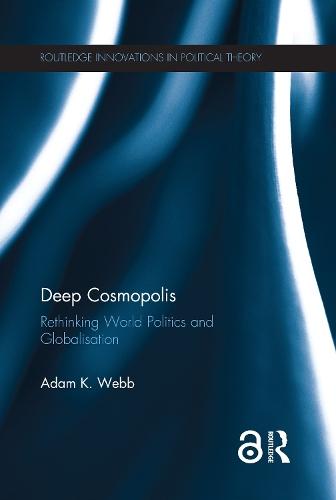Overview
Too often, observers of globalization take for granted that the common ground across cultures is a thin layer of consumerism and perhaps human rights. If so, then anything deeper and more traditional would be placebound, and probably destined for the dustbin of history. But must this be so? Must we assume--as both liberals and traditionalists now tend to do--that one cannot be a cosmopolitan and take traditions seriously at the same time? This book offers a radically different argument about how traditions and global citizenship can meet, and suggests some important lessons for the contours of globalization in our own time. Adam K. Webb argues that if we look back before modernity, we find a very different line of thinking about what it means to take the whole world as one’s horizon. Digging into some fascinating currents of thought and practice in the ancient world, the Middle Ages, and the early modern period, across all major civilizations, Webb is able to reveal patterns of ""deep cosmopolitanism"", with its logic quite unlike that of liberal globalization today. In their more cosmopolitan moments, everyone from clerics to pilgrims to empire-builders was inclined to look for deep ethical parallels—points of contact—among civilizations and traditions. Once modernity swept aside the old civilizations, however, that promise was largely forgotten. We now have an impoverished view of what it means to embrace a tradition and even what kinds of conversations across traditions are possible. In part two, Webb draws out the lessons of deep cosmopolitanism for our own time. If revived, it has something to say about everything from the rise of new non-Western powers like China and India and what they offer the world, to religious tolerance, to global civil society, to cross-border migration. Deep Cosmopolis traces an alternative strand of cosmopolitan thinking that cuts across centuries and civilizations. It advances a new perspective on world history, and a distinctive vision of globalization for this century which has the real potential to resonate with us all. The Open Access version of this book, available at http://www.taylorfrancis.com, has been made available under a Creative Commons Attribution-Non Commercial-No Derivatives (CC BY-NC-ND) 4.0 license.
Full Product Details
Author: Adam K. Webb (Hopkins-Nanjing Centre, China)
Publisher: Taylor & Francis Ltd
Imprint: Routledge
Dimensions:
Width: 15.20cm
, Height: 1.80cm
, Length: 22.90cm
Weight: 0.498kg
ISBN: 9781138891326
ISBN 10: 1138891320
Pages: 256
Publication Date: 12 May 2015
Audience:
College/higher education
,
Postgraduate, Research & Scholarly
,
Undergraduate
Format: Hardback
Publisher's Status: Active
Availability: In Print

This item will be ordered in for you from one of our suppliers. Upon receipt, we will promptly dispatch it out to you. For in store availability, please contact us.
Reviews
""Adam Webb brilliantly explores an alternative path to globalization with dashing originality and stunning erudition. Webb defends a cosmopolitanism that is at once rooted and diverse, culturally rich and historically sensitive. His vision of a ""deep cosmopolis"" draws at once on the virtues of ""local knowledge"" and the universalist impulse that is embedded within all human cultures, yet resists the homogenized and flattened form of globalization encouraged by an elite class dismissive of local diversity and impatient with the rich complexity of civilizations."" —Patrick Deneen, University of Notre Dame
Adam Webb brilliantly explores an alternative path to globalization with dashing originality and stunning erudition. Webb defends a cosmopolitanism that is at once rooted and diverse, culturally rich and historically sensitive. His vision of a deep cosmopolis draws at once on the virtues of local knowledge and the universalist impulse that is embedded within all human cultures, yet resists the homogenized and flattened form of globalization encouraged by an elite class dismissive of local diversity and impatient with the rich complexity of civilizations. -Patrick Deneen, University of Notre Dame
"""Adam Webb brilliantly explores an alternative path to globalization with dashing originality and stunning erudition. Webb defends a cosmopolitanism that is at once rooted and diverse, culturally rich and historically sensitive. His vision of a ""deep cosmopolis"" draws at once on the virtues of ""local knowledge"" and the universalist impulse that is embedded within all human cultures, yet resists the homogenized and flattened form of globalization encouraged by an elite class dismissive of local diversity and impatient with the rich complexity of civilizations."" —Patrick Deneen, University of Notre Dame"
Author Information
Adam K. Webb is Resident Professor of Political Science at the Hopkins-Nanjing Centre, which is one of the two overseas branches of the Johns Hopkins University School of Advanced International Studies (SAIS).




